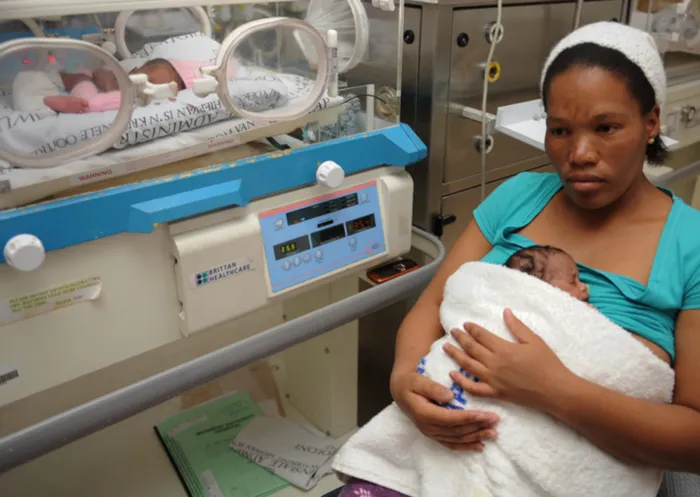US supplies a lifeline for SA babies

FEEDING: Nonkosi Mase, a mother of twins, is one of thousands of women who benefited from breast milk donated to Milk Matters. The organisation recently received a donation of breast milk from American mothers who are members of the International Breast Milk Project. Picture: Cindy Waxa FEEDING: Nonkosi Mase, a mother of twins, is one of thousands of women who benefited from breast milk donated to Milk Matters. The organisation recently received a donation of breast milk from American mothers who are members of the International Breast Milk Project. Picture: Cindy Waxa
A number of premature babies in Cape Town are to be fed life-saving breast milk – all the way from California.
The milk has been donated by an American NGO to the city’s milk bank, Milk Matters, and will help thousands of premature babies who are in urgent need of donor breast milk.
American mothers who are members of the International Breast Milk Project donated the milk, something they do every year.
Most of the infants, who are spread across different neonatal centres in the province, cannot have milk from their mothers because of illness, HIV exposure and the inability of mothers to produce enough milk, among other reasons. Formula milk lacks the nutritional value the babies urgently need.
Louise Goosen, chief executive officer and co-founder of Milk Matters, said the milk would go a long way in boosting the development and health of these babies, who were often at risk of developing opportunistic infections.
Milk Matters, an NGO that works from Mowbray Maternity Hospital, provides pasteurised breast milk from human donors to hospitals for vulnerable premature babies. Established almost eight years ago, it remains the only breast milk bank in the Western Cape, and supplies milk to 23 hospitals.
Goosen said while a few hospitals in the province had their own breast milk supplies, these were provided mainly in-house for patients.
While the milk bank mainly depended on local mothers for milk donations throughout the year, Goosen said supplies dropped substantially during the festive season, particularly around Christmas.She said the donation from California had come at the right time.
“It will go a long way. We will be able to provide breast milk to every needy baby.”
The milk was being kept in cold storage at a facility at the Waterfront and would be picked up as it was needed.
Goosen said the latest donation should not stop local mothers from contributing milk.
According to Dr Max Kroon, senior paediatrician at Mowbray Maternity Hospital, breastfeeding was not only beneficial to the baby during the first year of life, but research had shown it reduced the baby’s risk of developing diseases such as diabetes, hypertension and heart conditions later in life. - Cape Argus